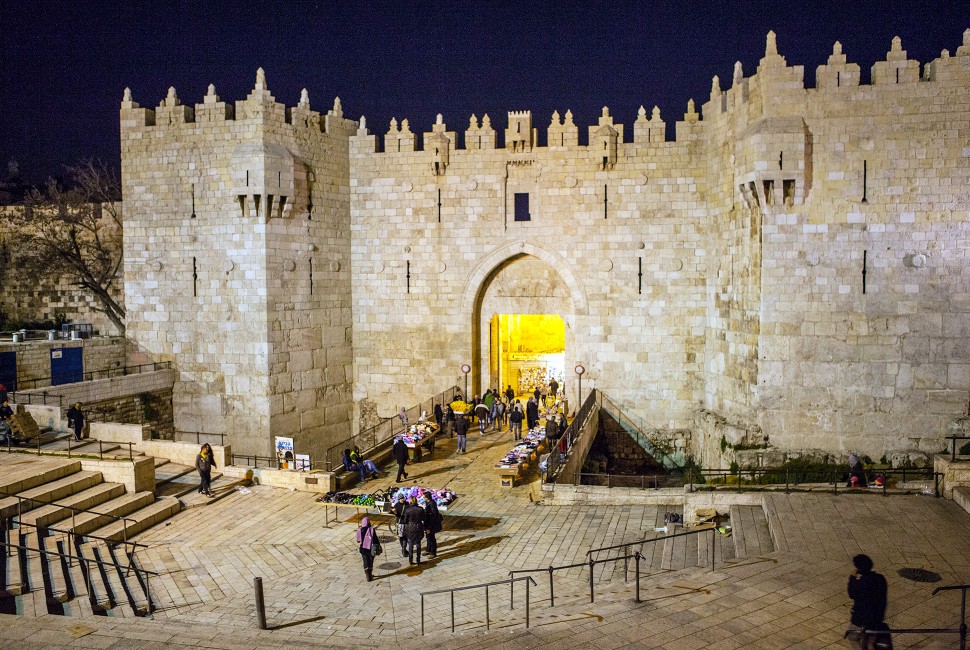The October 2023 attack in Israel, and the bombings and mass casualties that followed in Gaza, led to protests and counter protests and has been the subject of misinformation, leaving little space for constructive discussions.
“Debates and disagreements about complex topics are valid and vital, but debates are more likely to be productive if the participants are drawing from vetted and nuanced scholarship,” said David Shyovitz, associate professor of history and director of the Crown Family Center for Jewish and Israel Studies.
Recognizing an urgent need to provide students and other members of the Northwestern community with a foundational knowledge of Israel and Palestine to make sense of what they were reading and seeing on television and social media, a group of Northwestern professors developed a plan for a lecture series about the region.
The joint speaker series, presented this spring at Northwestern, was co-hosted by the Middle Eastern and North African (MENA) Studies Program, the Crown Family Center for Jewish and Israel Studies and the Buffett Institute.
“With seven speakers on meaningful historical topics, the series was practically the equivalent to a class — just without assignments or grades,” said Wendy Pearlman, interim director of the MENA Studies Program.
I hope our series shows how taking a risk can be worth it.”
“A major strength in planning and executing the series was the collaboration between academic units, especially the MENA and Jewish and Israel studies programs,” said Maayan Hilel, assistant director of the Crown Family Center.
“These programs are often seen as representing different, even opposing, perspectives and constituents. The decision to work together on such a controversial topic — particularly during a time of horrific violence that has stirred deep feelings of trauma, pain and anger — was like swimming against the tide,” Hilel said.
“In our polarized climate, it is common to retreat to one’s own echo chamber rather than seek out people whose views or backgrounds are different,” Shyovitz said. “But these kinds of encounters are vital. In fact, this was the element of the series that many of our invited speakers were most struck by — they were surprised and impressed that we had managed to assemble a well-rounded and heterogeneous lineup and were excited to play a part.”
Nikolay Markov, a doctoral candidate in the Driskill Graduate Program in Life Sciences at Feinberg School of Medicine, attended all the in-person talks in Evanston.
“I was shocked by the events on October 7. I have family and friends in Israel and some of my colleagues come from Palestine. Although I heard the phrase “Gaza Strip” during my childhood, I did not understand what the forces at play were. This series announcement immediately caught my eye, since it promised to explain the context to me,” Markov said.
Instead of the heated exchange of opinions he saw elsewhere, Markov was struck by the opportunity to focus on the history of the region starting with the 19th-century Ottoman Empire.
“I think the series gave us all some distance, and with it, the opportunity to learn and observe, without being forced to take sides immediately.”
During the opening remarks, the faculty organizers shared they held very different positions about the current events yet strove to agree on the topics and speakers and jointly present the series to the audience.
“This insight made me see the series not just as educational, but also as an attempt at building a dialogue between people holding different, often opposing views, a dialogue in the best spirit of the word, starting at common values and knowledge,” Markov said.
The organizers hope the series will serve as a model to build upon.
“Studying difficult and complex topics like this should not happen only when disaster strikes. It would be preferable to model the importance of deep knowledge and intellectual curiosity proactively, so that these values come to shape the entire culture of Northwestern,” Shyovitz said.
With more lead time, the organizers say they would have liked to include more people in the planning and conceptualization of the speaker series, as well as include additional speakers.
“The most important message for other institutions is, don’t be afraid to take on initiatives of this sort. People might think it’s easier to simply avoid talking about Palestine and Israel, but to back away from engaging this topic because it seems too controversial is to fail in our responsibility as educators,” Pearlman said.
“Universities should be focused on creating learning opportunities, of promoting nuanced knowledge and understanding, of encouraging their campuses to engage serious research, and of opening space for difficult conversations. I hope our series shows how taking a risk can be worth it.”
Recordings of the fundamental history of Israel and Palestine joint speaker series can be viewed on the Buffett Institute YouTube channel.


